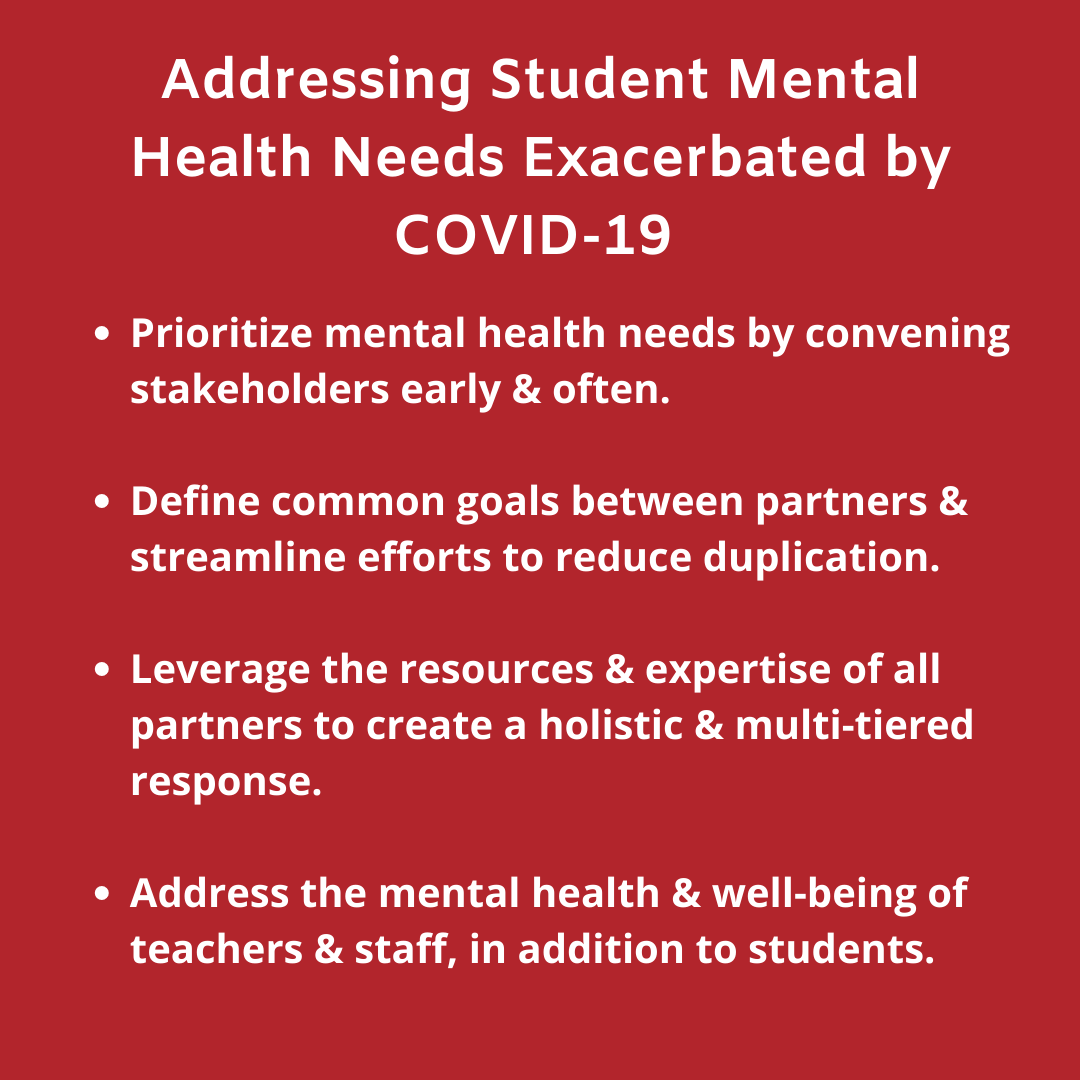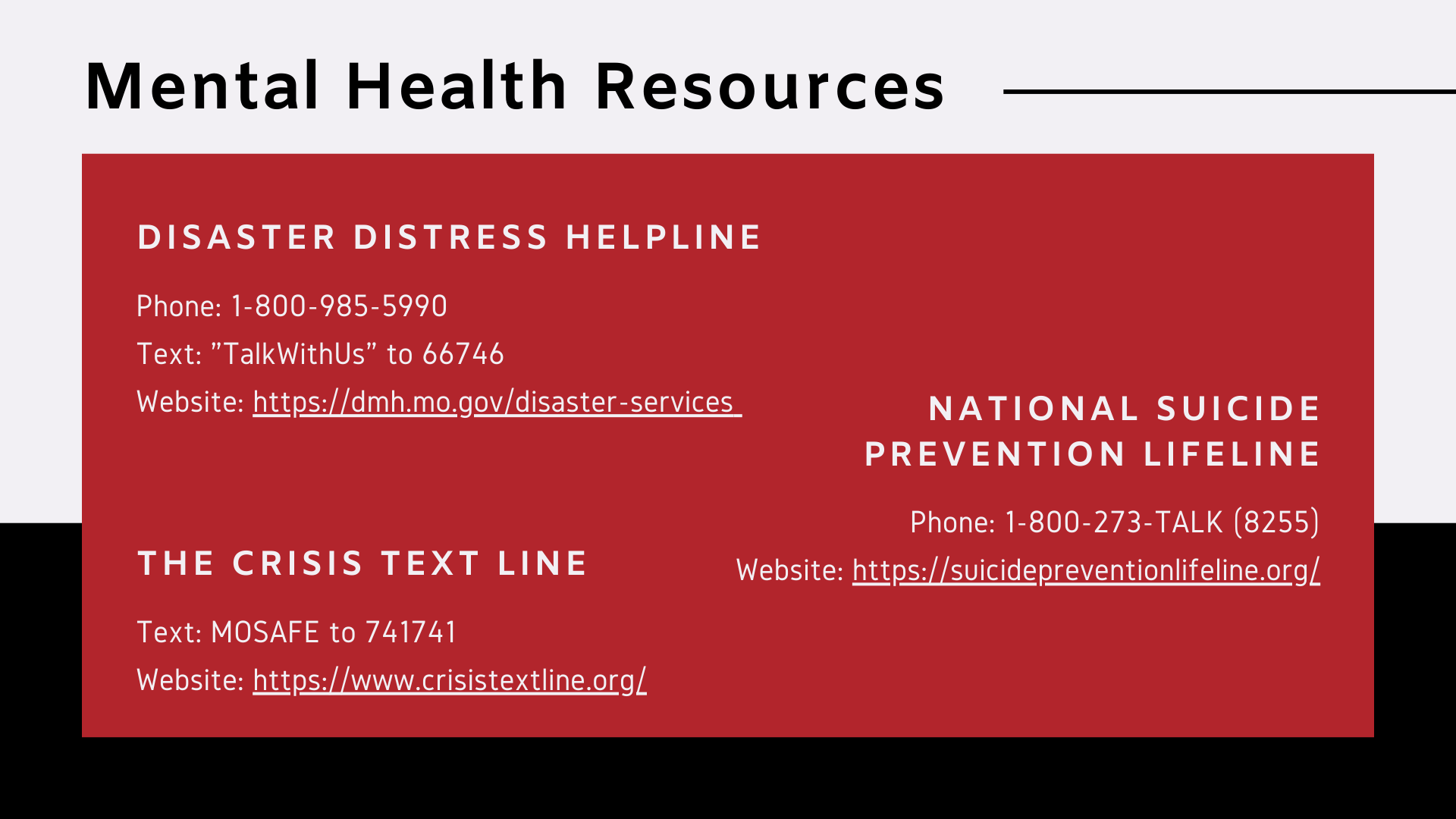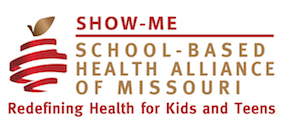MOSBHA Calls for Heightened Awareness & Prioritization of Student Mental Health Needs
Mental Health Needs of Missouri Children and Youth
Prior to COVID-19, youth mental health was already a major concern for Missouri educators & caregivers, with 24% of Missouri children reported to have one or more emotional, behavioral, or developmental condition during the 2017-2018 school year according to Kids Count. Many students receive mental & behavioral health services through school-based mental health programs; nationally, according to research presented by the National School-Based Health Alliance, 70% of children who receive mental health services access those services at school.
With school closures beginning in mid-March 2020 and extending through the end of the 2019-2020 school year, access to services previously received during school hours has essentially ceased. Given the unique combination of the public health crisis, social isolation, and economic recession, as expanded upon in a recent JAMA Pediatrics article, the COVID-19 pandemic will likely worsen existing mental health problems and lead to more cases among children and adolescents.
Further, students, as well as teachers and staff, who may have suffered the loss of family members and loved ones as well as significant changes to life circumstances due to COVID-19, will return to school dealing with grief. The stress associated with this virus may understandably increase worry and anxiety in our students, staff, families, and communities.

Role of School-Based Health Programs
School-based mental health programs (SBMHP) are in a critical role to respond to the mental health needs of children and adolescents exacerbated by COVID-19. SBMHPs, typically sponsored by community mental health centers (CHMCs) or federally qualified health centers (FQHCs), provide a continuum of support for students, including prevention and promotion curriculum, family and group psychoeducation and therapy programs, and individualized counseling & therapy.
Other types of school-based health (SBH) programs, such as school-based health centers and telehealth programs, are also in a position to address mental health needs exacerbated by COVID-19. These programs often have staff with trauma training and address holistic student needs through referrals and wraparound services, both of which may be further leveraged to support students.
What You Can Do—Guidance for School and School-Based Health Program Partners
The Alliance’s vision is that every child and youth in Missouri has an equal opportunity to succeed by assuring access to high quality health and mental health care. Educators and healthcare providers—now more than ever—can leverage their cross-sector partnerships to address the heightened need of our students. To that end, we have provided the below guidance and resources for you to use and share with others in your networks.
- Prioritize addressing mental health needs by convening all stakeholders early and often in preparation for the 2020/2021 school year.
- Critical stakeholders may include SBH program partners, school nurses, school counselors or social workers, school leadership, teachers, parents, and students. It is important to include as many voices as possible to understand the mental health needs, as well as existing resources and supports, unique to each school and community.
- If you have not previously worked with a community mental health center, they may be able to support by providing training, expertise, or resources as well as accept referrals. The MO Department of Health has a map of community mental health centers–access here to find a provider in your area.

- Define common goals between all partners and streamline efforts to reduce duplication of efforts.
- Include messaging to address mental health needs in school’s reentry communication plan to ensure consistent messages. The Missouri School Boards’ Association’s Pandemic Recovery Guidance includes extensive guidance on developing an effective communications procedure.
- The National Association of School Psychologists and the American School Counselor Association developed a guide on school reentry considerations and supporting student social and emotional learning (SEL) amidst COVID-19 which may be helpful in determining priorities. CASEL also developed a guide to leverage SEL in preparation for school reopening.
- Leverage the resources and expertise of all partners to create a holistic and multi-tiered response to mental health needs.
- Consider providing youth mental health first aid (YMHFA) to school staff and educators to understand common mental health challenges for youth and how to assist them. The Center for Education Safety at the MSBA provides YMHFA to all Missouri schools at no cost.
- SBH programs who did not previously provide mental health services in the school setting should explore leveraging their sponsoring organization’s mental health resources to refer students to increase access to mental health care.
- SBH programs have a critical opportunity to support the schools they serve in their crisis management efforts, such as ensuring that all communications and services provided to students and parents are developed and disseminated with a trauma-informed lens.
- Plan for conducting ongoing behavior/mental health monitoring and assessment for the school community. See example screening form and questions here.
- SBH programs and school staff can work together to develop and provide educational materials on loss and coping with stress for families, staff, and parents. The National Association of School Psychologists provides tips for teachers and administrators on addressing grief.
- SBH providers can support school faculty and staff in identifying families in need of long-term physical and mental health support and intervention.
- Address the health and well-being of teachers and staff, in addition to students, to support an environment of mental well-being.
- Schools and/or SBH programs can work together to provide counseling support services available to faculty and staff via Employee Assistance Programs that are available. The MU Extension offers a virtual program for mental wellness called Taking Care of You.
- The SBH program can support schools to provide information to staff on signs and symptoms of mental health issues or crisis to observe in themselves and in students.
sdsds

sdsdsds
ssdsd
Resources
Resources from MU Extension | Email Amy Bartels to learn more!
- Youth Mental Health First Aid — Available at no cost in partnership w/ Missouri School Boards’ Association
- Taking Care of YOU: Body, Mind, Spirit
- COVID-19 Emotional Health & Well-Being
- Tips for Co-Parenting During COVID-19
- Playing is Learning – Outdoor Play
sdsds
sdsdsds
ssdsd

